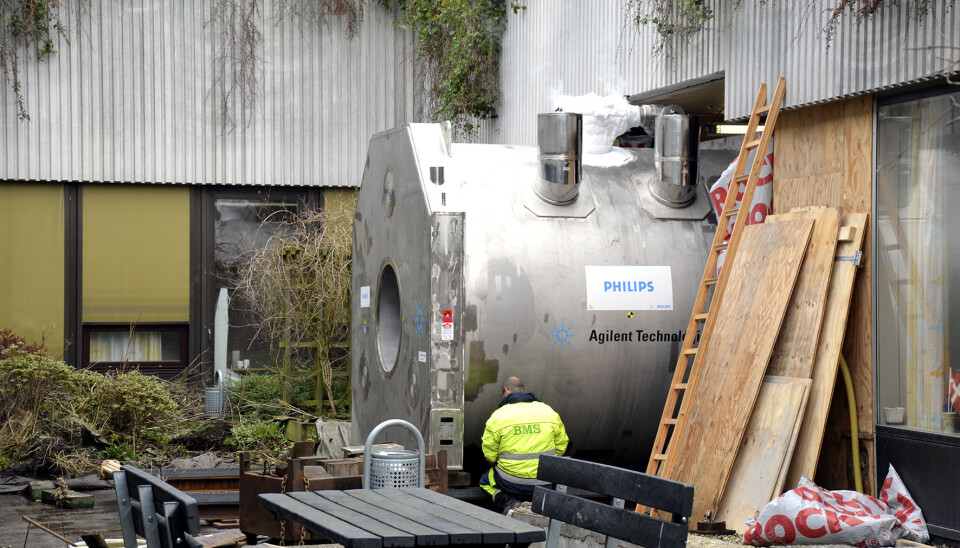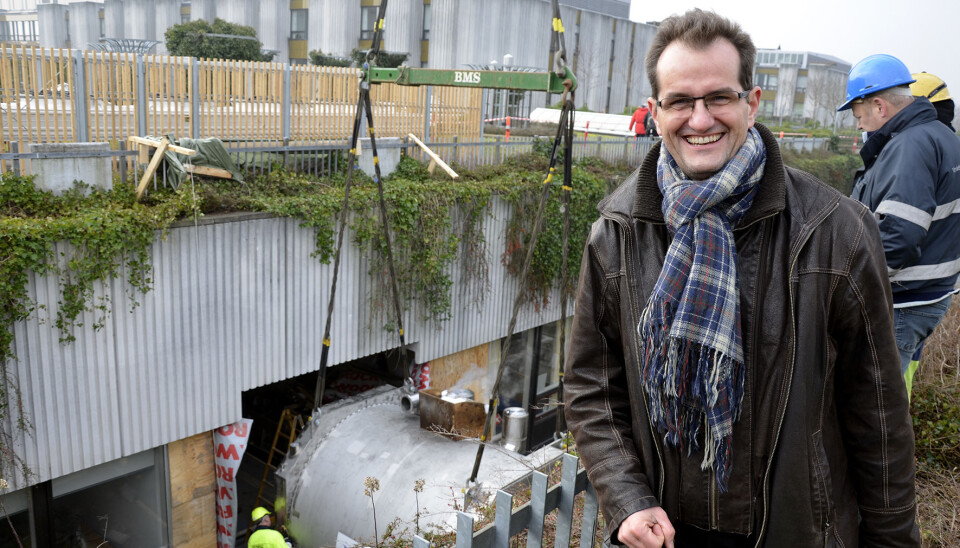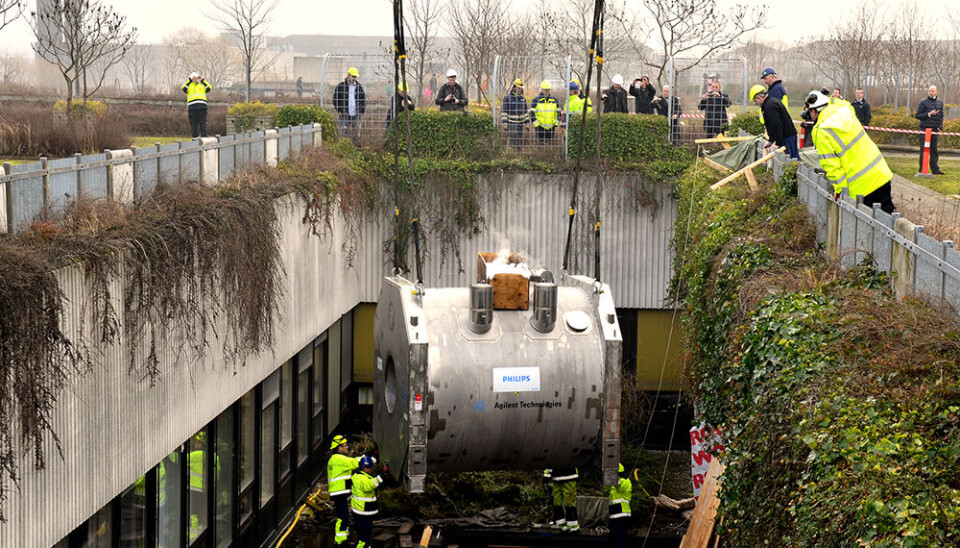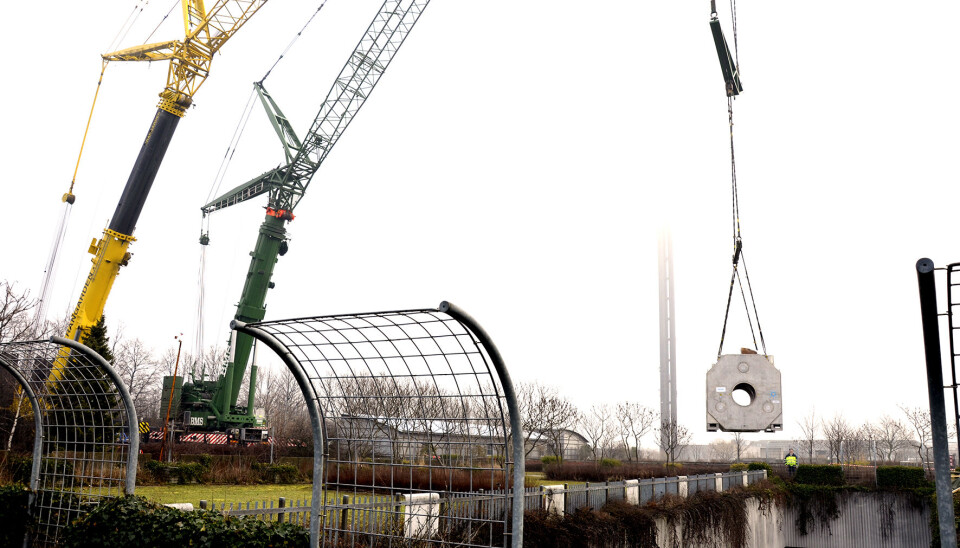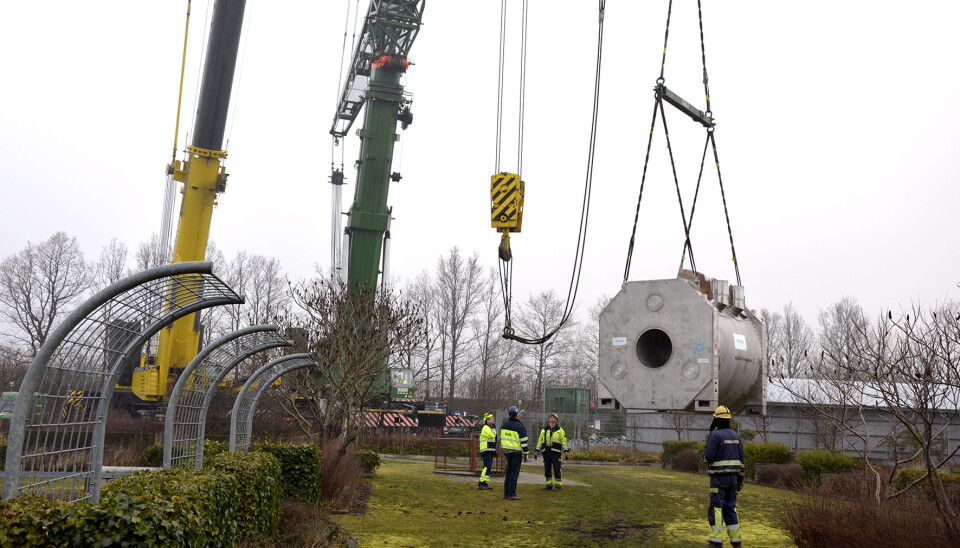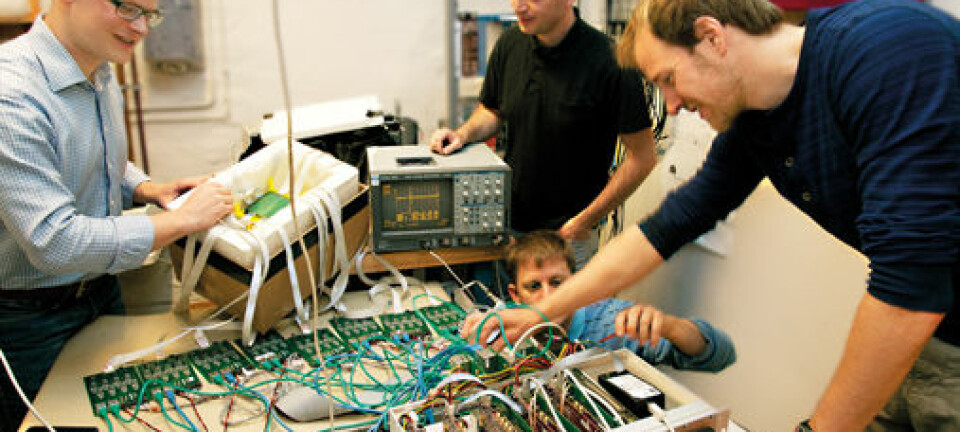Mega magnet to boost brain scans
A new magnet with a magnetic field 140,000 times that of the Earth’s is currently being installed in a Danish hospital. It will be used to scan brain activity and will give scientists new insight into diseases such as schizophrenia, Parkinson’s, MS and epilepsy.
A scanner weighing 40 tons has just arrived at Hvidovre Hospital in Denmark. It has a field strength of 7 Tesla, which is more than twice that of the hospital’s ‘old’ scanners.
Once it has been installed, the scanner will provide researchers with valuable information about diseases such as schizophrenia, Parkinson’s, multiple sclerosis and epilepsy.
The huge magnetic field will give a great boost to brain scans, especially those that look at the microstructure of the brain and where crucial biochemical metabolic processes are measured.
The scanner can produce images with an extremely high resolution and can make snapshots of thought activity. This makes it possible to study dynamic processes in the brain such as learning and memory, which in the case of Hvidovre Hospital will be particularly useful in metabolic studies, since the massive magnetic field makes it easier to distinguish molecules from otherwise identical surrounding molecules. This can give a highly detailed insight into the body’s metabolism.
New scanner improves research
The new scanner, which will be available to scientists across Denmark, is considered a national research resource. The hope is that this will attract researchers from home and abroad to contribute to a strong research environment at the hospital.
”The project with the new 7-Tesla scanner is of great importance to our research. It’s a great morale booster to see the magnet arriving at the hospital,” says Professor Hartwig Roman Siebner, the head of the Danish Research Centre for Magnetic Resonance at Hvidovre Hospital, who has volunteered to be the first test subject in the scanner.
----------------------
Read the Danish version of this article at videnskab.dk
